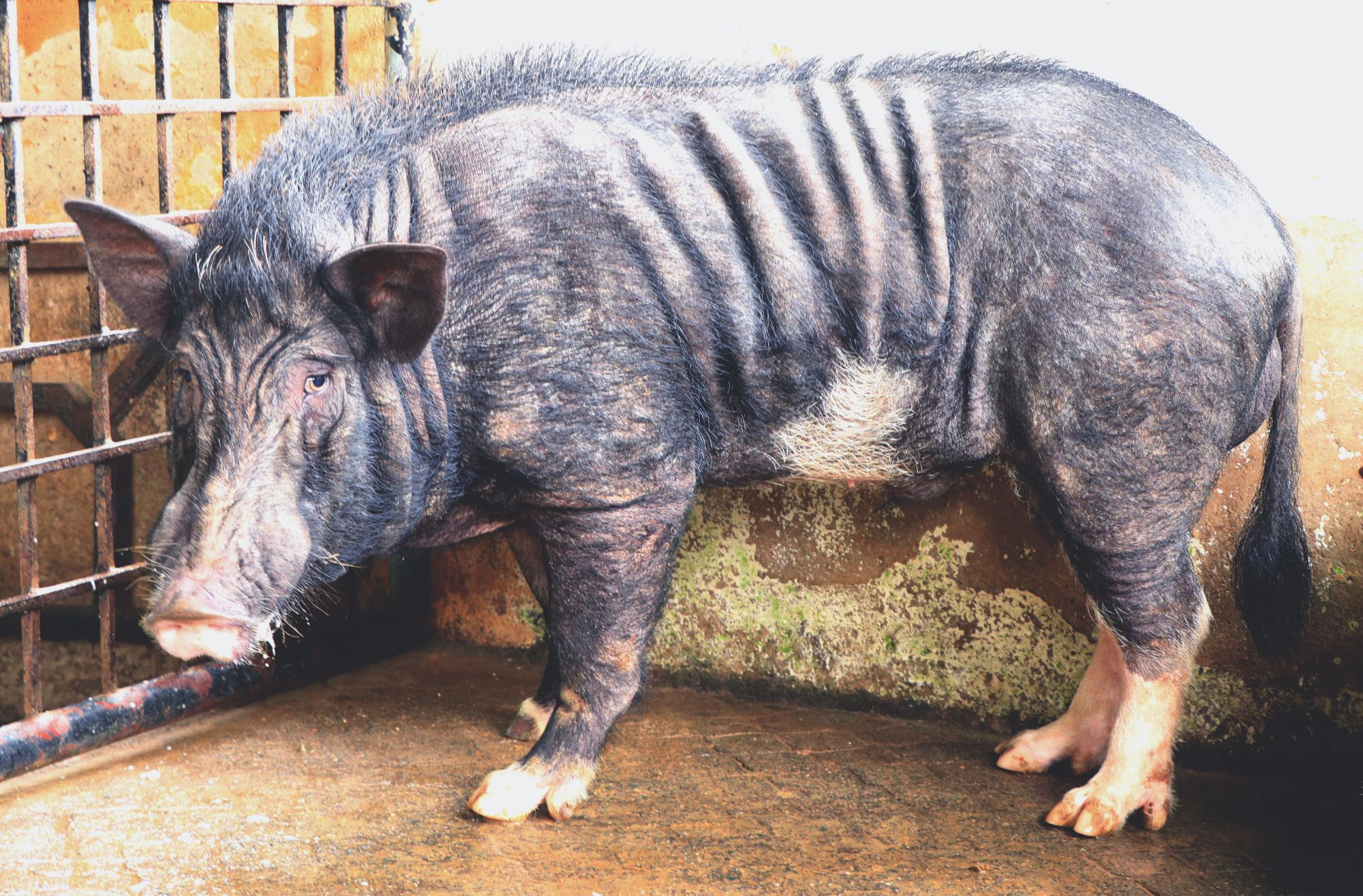Nicobari pig, the pride of Nicobar

Nicobari pig (Sus scorofa nicobaricus), a registered pig breed of India (INDIA PIG_3300_NICOBARI_09005), is endemic to Nicobar group of islands. In the Nicobar Island, the Nicobari pig, locally known as Ha-un, is more or less linked closely with the local culture and tradition of the Nicobarese tribe. They are sturdy and short pig breed with black, grey or brown in colour. Marked bristle crest (mane) on the back of the pig extending from mid head/shoulder to base of the tail is a characteristic feature of the breed. Facial profile varies from flat to concave. Short neck with very large jowl is another prominent feature. They reach body weight of 40-50 kg for male and 38-45 kg for female at 1 year of age. Litter size varies from 5-11. Nicobari pigs are semi-feral in nature and no systematic or scientific management is followed by the tribal people. As such, tribals are not aware much about the farming system and the pigs are reared under free-range system and fed with locally available resources. Generally, pigs are not reared for commercial purposes. Molecular study indicated that Nicobari pig diverged from Asian pigs between 72,260 to 131,210 years before present (YBP) and since its migration it has maintained the ancestral gene pool. ICAR-Central Island Agricultural Research Institute, Port Blair and Department of Animal Husbandry and Veterinary Services, A&N Administration maintain and propagate the pure germplasm of Nicobari pig.
Benefit:This breed is well adapted to the local environment of Nicobar and can survive with a very low level of management. Nicobari pig serves as the major source of protein supplement for Nicobarese people.
Source : Contact person with Name, Designation e-mail and phone no: Dr. Arun Kumar De, Scientist, Animal Science Division, ICAR-Central Island Agricultural Research Institute, Port Blair, Email: Arun.De@icar.gov.in, Mob: 9679515260.
